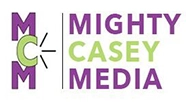David and Goliath – the little guy vs. the behemoth. Every small electronics retailer looks at Best Buy and wishes for a good slingshot. Wal-Mart opens down the street, and even Food Lion can start to feel like a small player.
You’re a small business owner. Definitely a David. You believe you’ve uncovered and crafted your business’ best story. The one that you just know will have the world – or at least a stampede of customers – beating a path to your door. You weave it into all your marketing materials, your advertising, your web presence, and you’re using the core elements every time you get a chance to talk about your business.
Let’s say you’re a small IT services company. Do you have competition?
Does McDonald’s have hamburgers?
Not only do you have to compete against your marketplace’s Goliaths, but also against the host of Davids – small companies like your own. You also have to pay close attention to all the elements of the story you’re telling, and extremely close attention to the parts of your story being told by your customers.
It may seem that your story, and the story of every other “small IT services company” David in the known universe, would be the same, right? Wrong. Remember, this story about your company is really about you, your team, and your philosophy. Your story has to truthfully communicate to your potential customer a clear idea of what kind of experience they’ll have doing business with you.
What can they expect when they call your company? What approach do you take toward figuring out the best answers for your customers needs? Who’s doing the happy dance when your company’s name is mentioned? And…who ISN’T doing the happy dance? This last one is often overlooked, and it could be the rock to the forehead that takes your business down.
The same rules hold for mega-enterprise, too – just on a much larger scale. Managing customer expectations is just as critical to a Goliath as it is to you. Wal-Mart tells a story: every-day low prices. Microsoft tells a story: software for every possible use and user. Your story needs to communicate as clearly, and you need to pay even closer attention to customer feedback than the big dudes do. Your company might not end up having to monitor a site like walmartsucks.com, but if you don’t listen to and manage customer problems at their outset…well, I hear getting hit in the head with a rock really hurts. Can really put you out of action. Sometimes permanently.
One of the pitfalls of being a Goliath is that every David in the world is out there revving up his slingshot, just aching for a chance to let fly and take you down. However, David also needs to watch his back. Failing to tell a true story, not dealing immediately and fairly with customer problems, ignoring team morale issues – all of these are potential business-killers. There are plenty of stones out there, and plenty of slingshots in the hands of your competition.
Bottom line? Even if you think of yourself as a David, you have Goliath’s weaknesses if you’re not paying close attention to the whole story being told by your company.
That’s my story, and I’m stickin’ to it.



